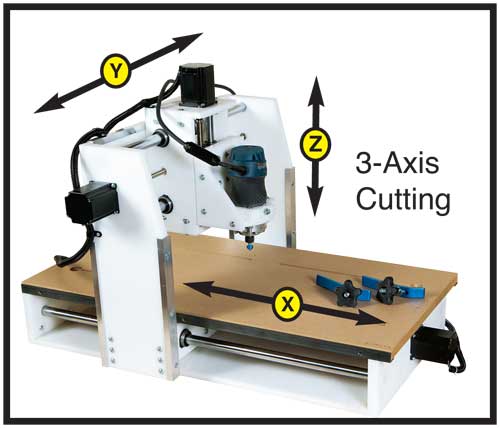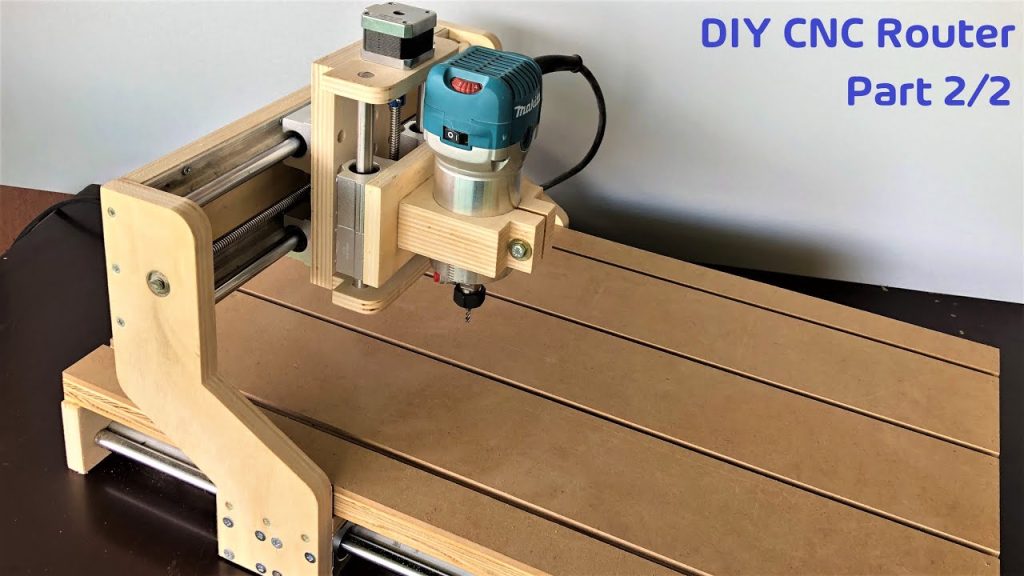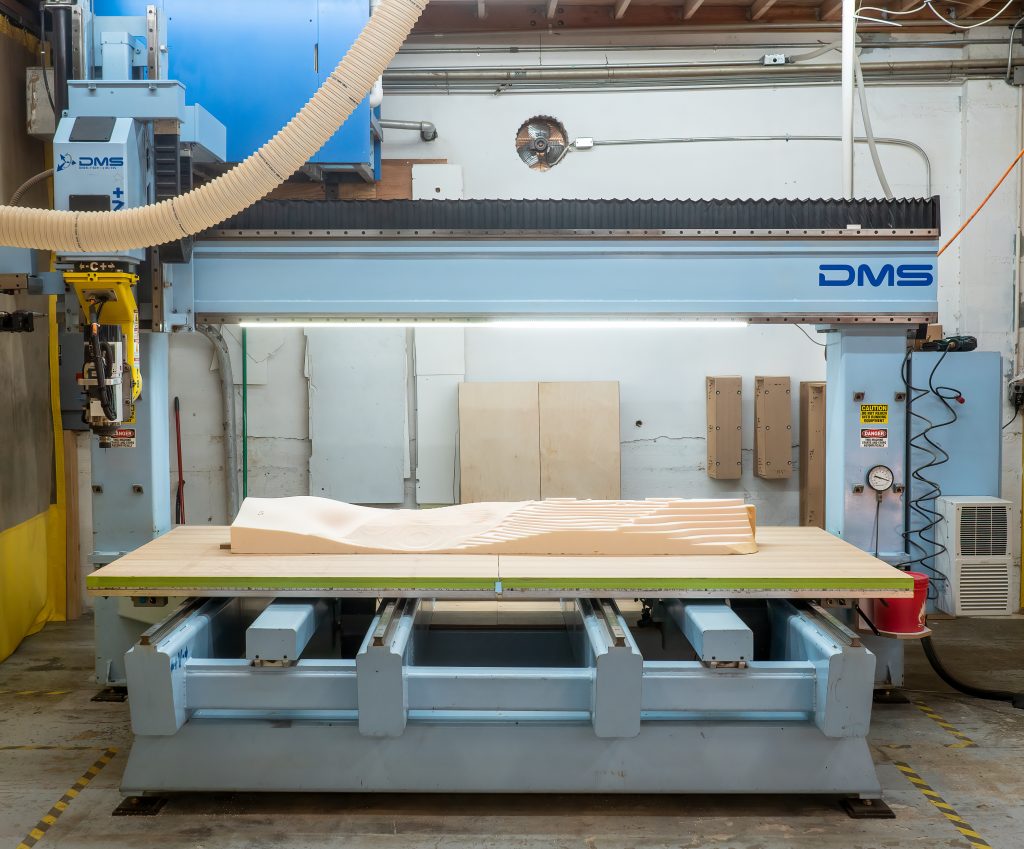Table of Contents
If you’re a CNC router operator, you may have found yourself wondering how much to charge for your services. It’s a common question that many in the industry struggle with, but there’s no one-size-fits-all answer. The price you charge for your CNC router work will depend on a variety of factors, including the complexity of the job, the materials used, and the amount of time it will take to complete. In this article, we’ll explore some of the key considerations that go into determining your rates and offer some tips for setting prices that are fair to both you and your clients. So, whether you’re just starting out as a CNC router operator or you’re looking to refine your pricing strategy, read on to learn more about how much to charge for CNC router work.
How Much to Charge for CNC Router Work?
As a CNC router operator or business owner, determining how much to charge for your services can be a challenging task. It is essential to strike a balance between making a profit and offering competitive pricing to attract clients. Here are some factors to consider when setting your CNC router pricing.
1. Materials
The material cost is a crucial factor to consider when determining your CNC router pricing. The cost of materials may vary depending on the type of project you’re working on. You’ll need to calculate the amount of material used and add it to the overall cost of the project. Remember to include any additional costs, such as shipping, handling, and waste.
One way to keep your material costs low is to purchase materials in bulk. This can help you get discounts and lower the overall cost of production, which can lead to more competitive pricing for your clients.
2. Machine Time
Machine time refers to the time it takes to complete a project on your CNC router. The longer a project takes, the higher the machine time cost. You’ll need to consider the size and complexity of the project when estimating machine time.
To keep your machine time costs low, consider optimizing your workflow. This can include things like scheduling jobs more efficiently, reducing setup time, and minimizing machine downtime.
3. Labor Costs
Labor costs refer to the cost of paying your employees to operate the CNC router. The cost of labor will depend on how many employees you have and their hourly wage. You’ll need to factor in labor costs when determining your CNC router pricing.
To keep your labor costs low, consider investing in training and development programs for your employees. This can help them become more efficient and productive, reducing the overall cost of labor.
4. Overhead Costs
Overhead costs refer to the indirect costs of running your CNC router business. This can include things like rent, utilities, insurance, and taxes. You’ll need to factor in overhead costs when determining your CNC router pricing.
To keep your overhead costs low, consider sharing space with other businesses, negotiating better rates with your suppliers, and investing in energy-efficient equipment.
5. Profit Margin
Profit margin refers to the amount of profit you make on each project. It’s essential to strike a balance between making a profit and offering competitive pricing to attract clients. You’ll need to determine your profit margin when setting your CNC router pricing.
To maximize your profit margin, consider offering value-added services like design, finishing, and assembly. This can help you differentiate your business from competitors and justify higher pricing.
6. Client Budget
The client’s budget is a crucial factor to consider when determining your CNC router pricing. You’ll need to understand your client’s budget and offer pricing that fits their needs while ensuring you can make a profit.
To accommodate clients with lower budgets, consider offering scaled-down versions of your services or offering discounts for bulk orders.
7. Market Rates
Market rates refer to the average pricing for CNC router services in your area. You’ll need to research the market rates to ensure your pricing is competitive.
To stay competitive, consider offering pricing that is in line with the market rates while still ensuring you can make a profit.
8. Customization
Customization refers to the level of customization required for a project. The more customization required, the higher the cost of production.
To keep your customization costs low, consider offering pre-designed templates or standard designs that can be easily modified to meet your client’s needs.
9. Volume of Work
The volume of work refers to the number of projects you’re working on at any given time. The more projects you have, the lower the cost of production per project.
To keep your production costs low, consider offering volume discounts or bundling services for clients who need multiple projects completed.
10. Quality of Work
The quality of work is a crucial factor to consider when setting your CNC router pricing. Clients are willing to pay more for high-quality work that meets their needs.
To ensure a high level of quality, invest in quality control processes, and train your employees to produce high-quality work. This can help you justify higher pricing and attract clients who value quality.
In conclusion, setting your CNC router pricing can be a challenging task. However, by considering the factors above and striking a balance between making a profit and offering competitive pricing, you can attract clients and grow your business.
Frequently Asked Questions
Here are some common questions about how much to charge for CNC router work:
What factors should be considered when determining the cost of CNC router work?
There are several factors that should be considered when determining the cost of CNC router work. These include the complexity of the design, the type of material being used, the size of the project, and the amount of time it will take to complete. Other factors may include the cost of overhead, such as rent and utilities, as well as the cost of labor and any additional costs associated with the project.
It is important to consider all of these factors when determining the cost of CNC router work, as they can greatly impact the final price. By taking into account these various factors, you can ensure that you are charging a fair and reasonable price for your services.
How do I determine the hourly rate for CNC router work?
The hourly rate for CNC router work can vary greatly depending on a number of factors. Some of these factors may include your level of experience, the complexity of the project, and the type of material being used. Generally speaking, the hourly rate for CNC router work can range anywhere from $30 to $100 per hour.
When determining your hourly rate, it is important to take into account all of these factors and to consider the going rate for similar services in your area. You may also want to consider offering discounts for larger projects or for repeat customers, as this can help to increase your overall profitability.
Should I charge by the hour or by the project?
Whether you should charge by the hour or by the project will depend largely on the specific project and your own preferences. Charging by the hour may be a good option for smaller projects, as it allows you to bill for the exact amount of time spent on the project. Charging by the project, on the other hand, may be a better option for larger projects, as it can provide a more accurate estimate of the final cost.
Ultimately, the decision of whether to charge by the hour or by the project will depend on your own preferences and the specific needs of your clients.
What is a fair markup for materials?
When determining the cost of CNC router work, it is important to factor in the cost of materials. A fair markup for materials can vary depending on the specific material being used, but generally speaking, a markup of 10-20% is considered reasonable.
It is important to keep in mind, however, that the markup for materials should be based on the actual cost of the materials, rather than an estimate. This will help to ensure that you are charging a fair and reasonable price for your services.
How can I ensure that I am charging a fair price for my CNC router work?
To ensure that you are charging a fair price for your CNC router work, it is important to do your research and to take into account all of the various factors that can impact the final cost. This may include researching the going rates for similar services in your area, as well as considering the cost of materials, labor, and overhead.
You may also want to consider offering discounts for larger projects or for repeat customers, as this can help to increase your overall profitability while still offering fair and reasonable pricing to your clients.
In conclusion, determining how much to charge for CNC router work can be a challenging task. It’s important to consider various factors such as material cost, machine time, and labor cost when setting your prices. While it may be tempting to charge less than your competitors, it’s essential to consider the value of your time and resources.
Ultimately, the key to success in CNC router work is finding the right balance between pricing competitively and ensuring that your business is profitable. By taking the time to research and understand your costs, you can set prices that are fair to both you and your customers.
So, whether you’re just starting out or looking to grow your CNC router business, remember that pricing is only one piece of the puzzle. By providing quality work, building strong relationships with your customers, and continuously improving your skills, you can create a successful and sustainable business that stands the test of time.
Request a quote today!
[contact-form-7 id="1578" title="Contact form"]
Please compress the file into a ZIP or RAR file before uploading. Alternatively, send through your RFQ by email.
enquires@unitymanufacture.com





